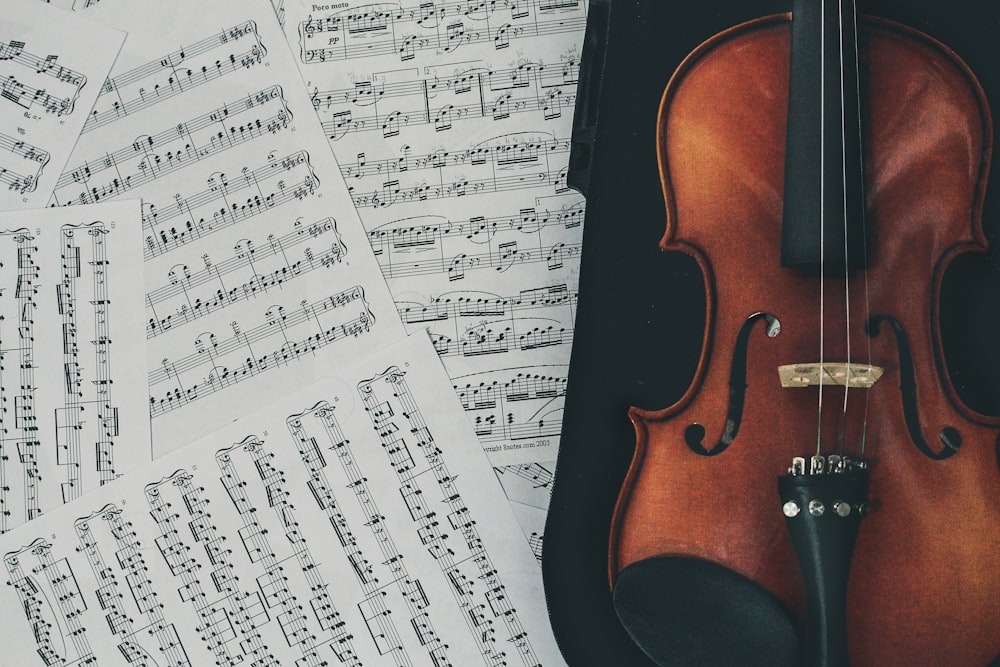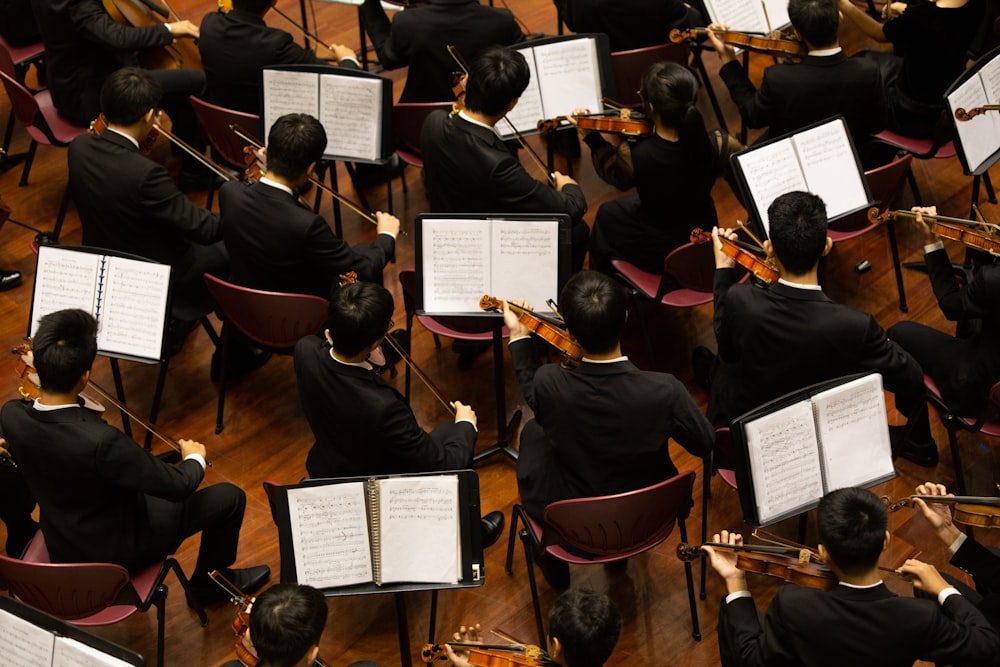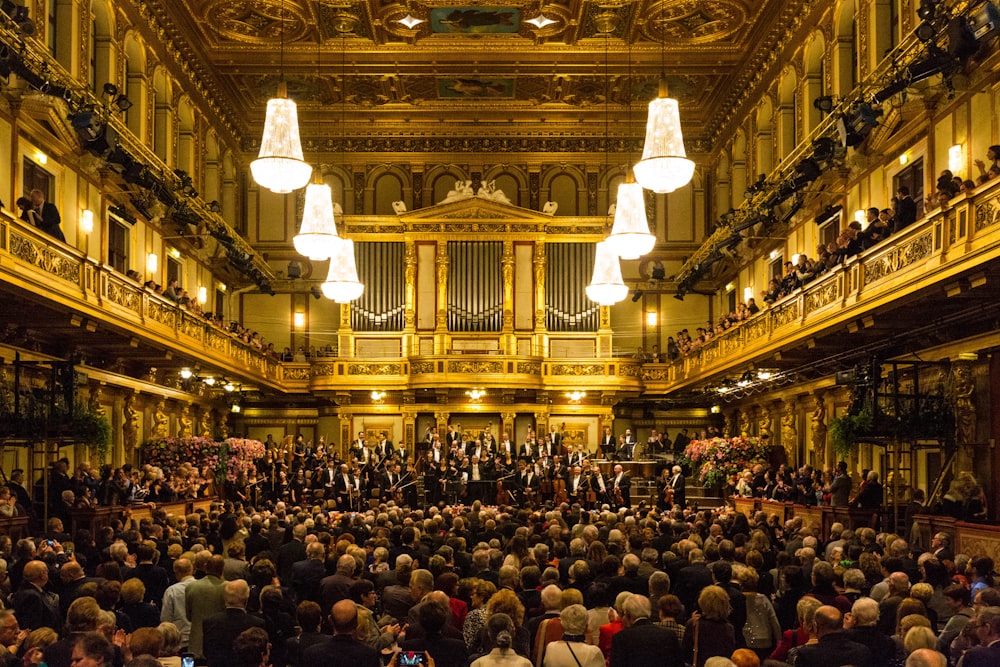In case you’ve watched any films or tv exhibits over the previous few months or many years, you might need seen that classical music—extra so than another style—is heard very often.
In case you’ve clocked this music model as being one of many dominant genres in just about all types of video and leisure, you’ve in all probability puzzled why that is. Is classical music simply that significantly better than common pop music? Are High 40 songs simply too costly to make use of for all the pieces?
These are nice questions, and whereas every is maybe true, the true purpose that classical music is heard so usually in films and tv is just because it really works. So, for those who’re trying to presumably use a classical music soundtrack in your individual venture, listed here are some useful insights into why (and the way) you must think about using royalty free classical music for youtube movies.
Classical music is (often) straightforward to search out and license
As we’ve lined on the Soundstripe weblog fairly a bit prior to now, there’s loads of misnomers round music for content material creators—specifically across the distinction between copyright free and royalty free and what’s royalty free music.
And whereas there actually is loads of music that may very well be thought of copyright free music (or moderately, copyrighted music that’s now free) in addition to music that’s out there within the public area, it’s usually a lot trickier than one may assume.
Nonetheless, many filmmakers and editors are drawn to classical music as a result of they assume that a minimum of older classical music recordings are free to make use of for his or her tasks. And thus, we do get loads of movies and tv exhibits utilizing sure songs which can be a minimum of partially out there within the public area. A self-fulfilling prophecy goes on the place extra classical music is used resulting from this phenomenon.
In reality, classical music is nice for a lot of tasks, extra for the explanations we checklist under than for its ease of discovering and licensing. However the truth stays that it a minimum of appears simpler to search out and use as a result of build-up of rumors over time.
Classical music is timeless and evergreen
A extra seemingly purpose you hear classical music in so many films, tv exhibits, and different types of video and content material is that classical music is timeless and evergreen. Until you’re doing a interval piece or a present that’s meant to really feel very very like it’s a part of a selected time or place (like how Stranger Issues makes use of music, for instance), utilizing fashionable music in your tasks is a little bit of a threat as it should without end join your movies to its present time.
Classical music, then again, when utilized in movie, tv, and different movies, is a approach to put your story right into a context that’s exterior of your present place and time. Classical music feels timeless as a result of it’s. The heyday of Beethoven and Bach was so way back that audiences don’t join the music to any particular period as an alternative, it simply feels… properly… traditional.
If you wish to create movies and content material that keep contemporary and really feel evergreen no matter whether or not they’re watched as we speak or a number of months or years from now, classical music is an effective way to offer your movies a timeless high quality that retains them all the time feeling contemporary.
Classical music can set a location or scene
Now, to barely contradict some extent above, whereas classical music doesn’t harken to a selected period of time—as in audiences don’t immediately know that German composer and pianist Ludwig van Beethoven’s late interval was between 1812 and 1827 and may’t recall what that point was like—the viewers does know what classical music means for setting a scene.
When audiences hear classical music in a movie or venture, they acknowledge what it represents: sophistication, magnificence, and significance. These themes comply with classical music throughout all media varieties and could be an effective way to assist set a location or develop a scene.
As a filmmaker or visible storyteller, there are loads of methods you may inform the viewers that what they’re about to see is vital. Nevertheless, whereas you need to use different filmmaking and cinematography tips as properly, a well-timed needle drop of a classical music piece can immediately convey the setting and significance to your viewers.
Classical music may also help develop a theme
Moreover, whereas classical music can immediately set a location or a scene, it may well additional develop a theme. One a part of that is that every one classical music (kind of) has a sophistication and magnificence that may be a theme unto itself.
Nevertheless, on prime of that, classical music isn’t fully a monolith. All kinds of classical music tracks are composed to elicit all kinds of feelings. There’s pleased classical music and unhappy classical music. There’s carefree classical music, and there’s terrifying classical music.
When trying by a classical music library to search out the suitable tracks to your tasks, bear in mind you can nonetheless seek for all of the totally different theme signifiers as you often would for another music varieties to your tasks.
Classical music is simply as emotive as another style. It may be an effective way to develop a theme in your movies or tasks by letting the soundtrack—in a classy method—inform your viewers concerning the story beneath.
Classical music has built-in pathos
Lastly, maybe greater than another kind of contemporary, fashionable music, classical music is chock-full of pathos and emotion. The older the classical music composition, the higher, as these songs have had many years to construct up emotional connections and are utilized in totally different movies and types of leisure.
Chances are high, for those who’re utilizing a classical music tune in certainly one of your tasks, your viewers has heard the music earlier than in a single kind or one other. Whether or not your viewers is conscious of this or not, which means these classical music numbers carry with them plenty of emotion and pathos.
After all, pathos is the unique Greek phrase for “expertise, misfortune, emotion, situation,” and it covers how creative work can immediately make audiences really feel compassion, pity, or sympathy for one thing or some character in movies, tv, and different tasks.
Know that these classical music tracks have built-in pathos, and use them to your benefit as you choose the suitable soundtracks to your tasks.




